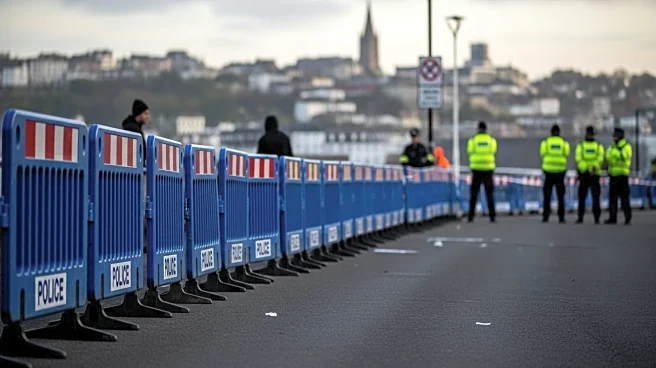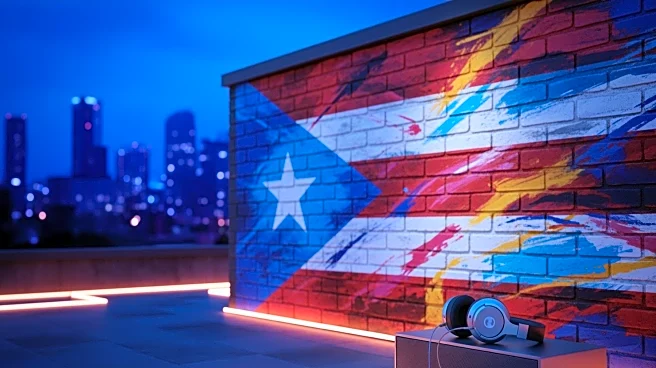What's Happening?
In Plymouth, a protest was organized by Flag Force Plymouth in response to the city council's decision to remove St George flags deemed unsafe or unlawful. The protest attracted approximately 150 individuals advocating for the flags, while a separate group of about 70 people gathered to support the rights of refugees and asylum seekers. Devon and Cornwall Police effectively managed the situation by using three parked vans to contain the Piazza and keep the two groups separate. As of 19:00 BST on Sunday, no arrests had been reported. This protest follows similar demonstrations outside Plymouth City Council offices earlier in the week.
Why It's Important?
The protest highlights ongoing tensions between local authorities and community groups over cultural symbols and immigration policies. The removal of St George flags has sparked debate about public safety versus cultural expression, reflecting broader societal discussions on national identity and inclusivity. The presence of anti-racism protesters underscores the importance of addressing refugee and asylum seeker rights, a topic that remains contentious in many parts of the world. The peaceful management of the protest by police suggests a commitment to maintaining order while allowing public expression.
What's Next?
Future actions may include continued dialogue between Flag Force Plymouth and the city council to address concerns over flag removal policies. Additionally, advocacy groups supporting refugees and asylum seekers may seek further engagement with local authorities to promote their causes. The situation could lead to more organized protests or discussions aimed at finding a balance between cultural representation and public safety.
Beyond the Headlines
The protest in Plymouth may reflect broader national and international debates on cultural symbols and immigration. The removal of flags can be seen as part of a larger conversation about how societies navigate cultural heritage and modern safety standards. Furthermore, the involvement of anti-racism protesters highlights the intersection of cultural and humanitarian issues, potentially influencing public policy and community relations.










